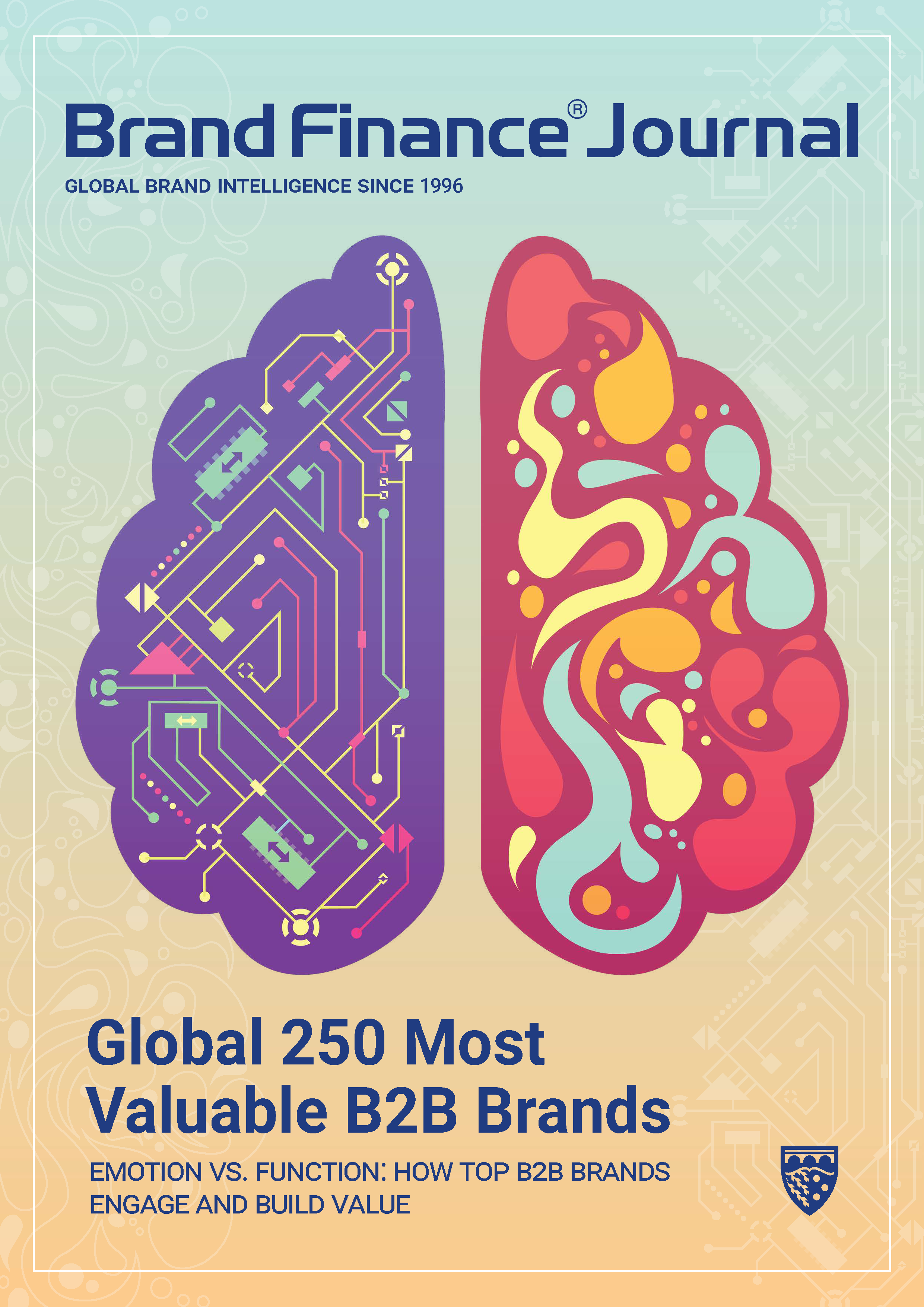By Marcelo Moller, Vice President Global Branding, Marketing & External, Communications, Wolters Kluwer
This article was originally published in the Brand Finance Global Most Valuable B2B Brands Index 2025
Societal shifts: Building a brand to educate an industrialising world
Our story began during a transformative era - the Industrial Revolution of 19th-century Europe. As industries expanded rapidly, urban populations surged, and new skillsets became essential, society urgently required educated workers capable of managing emerging industrial roles. This created an unprecedented demand for accessible knowledge.
In response, four pioneering publishing houses emerged in the Netherlands: Wolters, Noordhoff, Samsom, and Kluwer. Each uniquely contributed to educational and professional publishing, addressing critical societal needs. These brands quickly earned trust as reliable sources of knowledge, empowering society through education and expanding into sub-brands to serve diverse customer segments. This momentum spread globally, with Lippincott, CCH, and CT in the U.S., and Ipsoa in Italy, among others. Everywhere, brands innovated simultaneously, reshaping knowledge distribution.
At this early stage, branding profoundly mattered. Each publishing house built its reputation on reliability, innovation, and credibility, forming strong local identities deeply connected to their diverse audiences.
Evolving customer needs: Unifying a brand for a global market
By the late 20th century, customer needs significantly shifted. Professionals who previously relied on localised solutions began operating in international markets, demanding globally integrated offerings. Customers evolved and so did our brand.
Recognising this change, by 1987 the four original Dutch publishers merged into one unified brand: Wolters Kluwer. This decision reflected our commitment to serving increasingly complex and global customer needs. By joining forces, we leveraged combined expertise, credibility, and trust, successfully expanding beyond local markets.
International acquisitions further reinforced our global reach, underscoring our evolved brand promise: global expertise combined with localised understanding. At this stage, branding became central, reassuring customers that despite expansion and evolution, our core values of reliability and customer focus remained consistent.
Technological progress: Reinventing the brand in a digital world
The arrival of the internet in the 1990s accelerated another transformative shift - technology profoundly disrupted publishing. Recognising this opportunity, Wolters Kluwer decisively invested in digital technologies, appointing our first global Chief Technology Officer by 1997. Digital transformation became not just an option but a strategic imperative.
By the early 2000s, our transformation accelerated significantly. A profound digital evolution, symbolised visually by a refreshed brand identity, communicated our commitment to technological leadership and innovation clearly and effectively.
Brand evolution was pivotal here. We articulated a clear message “When you have to be right.” Despite significant technological shifts, our commitment to expertise, accuracy, and customer-focused innovation remained stronger than ever.
Aligning society, customers, and technology under one brand
Throughout our digital journey, we consistently aligned brand evolution with societal trends, customer expectations, and technological advances. Introducing cloud solutions, mobile technologies, and advanced analytics reinforced our brand promise of delivering expert knowledge precisely where and when customers needed it.
We reorganised internally, transitioning from geographical structures to global, customer-centric teams. Our unified global branding articulated a clear yet powerful promise: consistent quality, tailored to local realities. Customers, whether in New York, Shanghai, or Amsterdam, recognised our brand as synonymous with trusted global expertise.
Advanced technologies: Strengthening the brand with innovation
In recent years, AI, blockchain, and advanced analytics reshaped customer expectations.
Customers sought predictive insights, personalised experiences, and real-time solutions. Wolters Kluwer swiftly responded, embedding advanced technology deeply within our offerings, reaffirming our role as an innovative partner committed to excellence.
Strategic acquisitions, such as Emmi and Enablon, further solidified our reputation, proving our capability to integrate cutting-edge technologies seamlessly. Here, branding emphasised innovation not simply as a feature, but as a fundamental commitment to continually enhancing customer outcomes.
Future-proofing the brand: Continuous evolution
Looking ahead, societal shifts, evolving customer expectations, and technological advancements will challenge brands. Leading brands must evolve, anticipate customer needs, embrace technological innovation, and respond to societal changes.
Our journey, from numerous local brands educating professionals in an industrialising society to a single global brand offering AI-driven expert solutions, showcases the power of strategic brand evolution. Successful brands proactively transform to anticipate societal trends, customer evolution, and technological breakthroughs.
In every era, branding has represented far more than identity. It embodies our promise of innovation, credibility, and customer-centricity. After more than 188 years, one lesson remains clear: adaptation is not merely survival; it is the cornerstone of sustained brand value.
In every chapter, the Wolters Kluwer brand evolves thoughtfully, ensuring enduring relevance, reliability, and trust - today and into the future.

